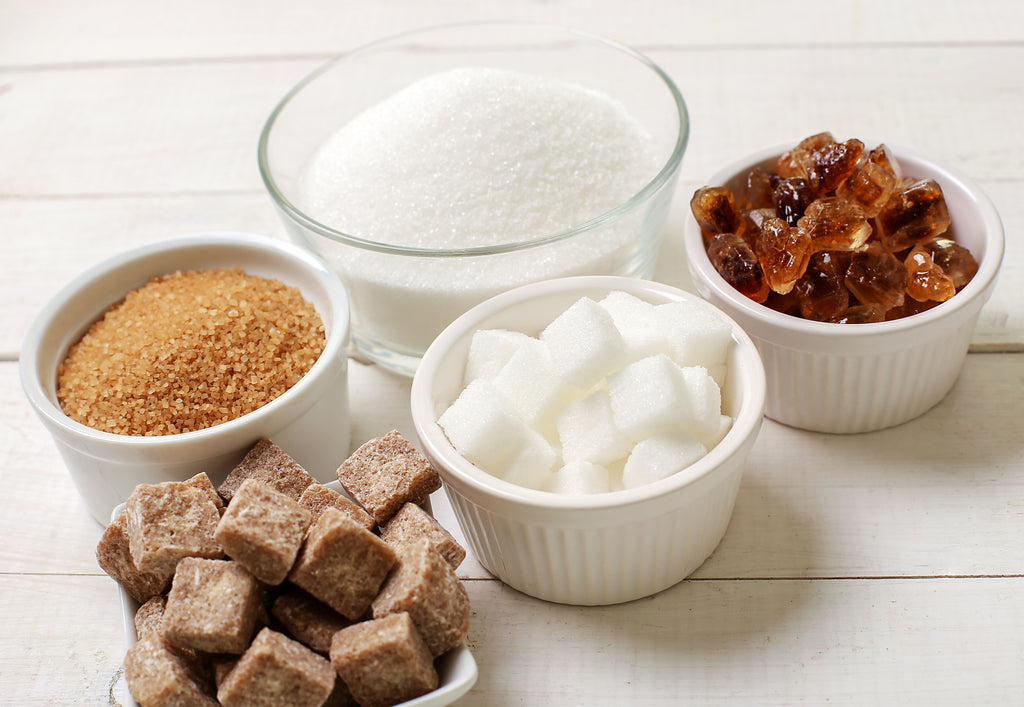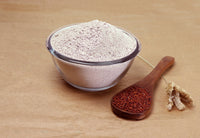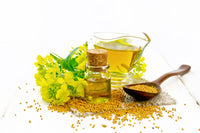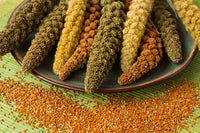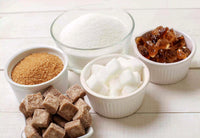In today's health-conscious world, people are decreasingly aware of sugar input and are looking for healthier alternatives. Sugar and Jaggery are two generally used sweeteners that have been a part of human diets for centuries. While both give agreeableness, their processing, composition, and implicit health benefits differ. In this blog, we will explore chinni and gur characteristics, nutritional profiles, and health implications to determine which is healthier for consumption.
What Is Sugar?
A form of carbohydrate called sugar is constantly used to sweeten meals and beverages. Regarding chemistry, sugar refers to a class of organic substances called saccharides, which contain carbon, hydrogen, and oxygen titles. Sucrose, present in sugarcane, sugar beets, and various fruits, is the most current kind of sugar.
Effects Of Excessive Sugar Consumption On Health
Excessive consumption has been linked to several health issues, including:
1. Increased Threat Of Obesity And Metabolic Diseases
Regularly consuming large quantities of sugar can beget weight gain and raise the threat of obesity. It can also affect metabolic abnormalities, type 2 diabetes, and insulin resistance.
2. Dental Health Implications
Its consumption is related to tooth decay and dental depression. Bacteria in the mouth feed on it as well as produce acids that erode tooth enamel, leading to dental problems.
3. Impact On Cardiovascular Health
High intake has been linked to an increased threat of heart complaints, including elevated triglyceride situations, advanced blood pressure, and inflammation.
4. Influence On Internal Health
Some research suggests an implicit link between its high intake and mental health issues, including depression and anxiety. Still, further studies are demanded to establish a definitive connection.
5. Chronic Conditions
Excessive consumption has been associated with an increased threat of developing chronic conditions similar to cancer, Alzheimer's complaint, and liver disease.
What Is Jaggery?
Jaggery, or" gur" or" panela," is a traditional sweetener extensively used in South Asia, Africa, and Latin America. It has been a part of human diets for centuries and is made by boiling raw sugarcane juice or win tire and allowing it to cool and solidify. Making gur involves minimum refining and conserving further the natural nutrients in the source material.
Composition And Processing Of Jaggery
It is less refined than Chinni and undergoes a more straightforward processing system. The process involves the following way:
-
Extraction: The juice is uprooted from raw sugarcane or palm sap by pressing or cutting the source material.
-
Boiling: The uprooted juice is boiled in large vessels, allowing the water to evaporate and concentrating the juice's natural sugars.
-
Cooling and solidification: Once the asked thickness is reached, the boiled juice is poured into moulds or cooled on flat shells, where it solidifies and takes the form of jaggery blocks, cakes, or cones.
The Nutritional Profile Of Jaggery
It offers some nutritional benefits, including :
1. Rich Source Of Vitamins And Minerals
Gur is rich in vitamins such as vitamin C and B-complex and minerals like iron, calcium, magnesium, and potassium.
2. Antioxidant Properties
It possesses antioxidant properties due to the presence of certain phenolic composites. These antioxidants help cover the body against oxidative stress and damage from free revolutionaries.
3. Fibre Content
Jaggery contains natural plant fiber, which aids digestion, alleviates bowel regularity, and helps control blood sugar.
4. Glycemic Indicator Of Jaggery
It has a lower glycemic indicator compared to sugar, which means it causes a slower and steadier rise in blood sugar levels.
Comparing The Health Benefits Of Sugar And Jaggery
1. Impact On Blood Sugar Levels
- It is high in glycemic index. This can cause problems where blood sugar levels quickly rise. It may be a matter of concern for those seeking to control their blood sugar levels or those with diabetes.
- Gur has a lower glycemic indicator, resulting in a slower sugar release into the bloodstream. This characteristic makes it preferable for individuals concerned about blood sugar control.
2. Weight Gain And Obesity
- Consuming redundant sugar can contribute to weight gain and obesity due to its high-calorie content and lack of essential nutrients.
- When consumed in temperance, it may offer certain benefits for weight management. Its fibre content promotes a feeling of wholeness, reducing the tendency to overeat.
3. Nutritional Value
- It is considered an empty-calorie sweetener because it only provides calories without significant nutritional value.
- Jaggery contains small quantities of minerals and vitamins, furnishing some nutritional value along with its sweetness.
4. Antioxidant Properties
- It lacks antioxidant properties and doesn't contribute to the body's defense against oxidative stress.
- Gur contains antioxidants that help neutralize free radicals and reduce oxidative damage, serving overall health.
Moderation And Consumption Tips
-
Importance of temperance in sweetener consumption Anyhow of choice between sugar and Jaggery, temperance is crucial to maintaining a healthy diet and managing overall intake.
-
Limiting the consumption of both sugar and Jaggery to moderate situations is advisable, considering individual salutary requirements and health conditions.
-
For individuals looking for a healthier alternative, incorporating gur in temperance can be a part of a balanced diet, considering its nutritional benefits.
- Jaggery can be used as a cover for sugar in various recipes, including desserts, beverages, and sauces, to enhance flavor and add nutritional value.
Conclusion
While sugar and Jaggery give sweetness, gur offers some implicit health benefits that sugar lacks. Jaggery's lower glycemic indicator, micronutrient content, implicit weight operation aid, and antioxidant properties make it a healthier alternative to sugar. Still, it's essential to consume any sweetener in temperance and consider individual health requirements and goals. By making informed choices about our sweeteners, we can take steps towards a healthier life without sacrificing the joy of indulging our sweet tooth.





